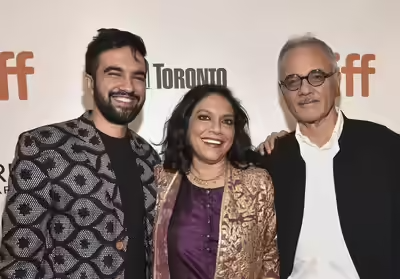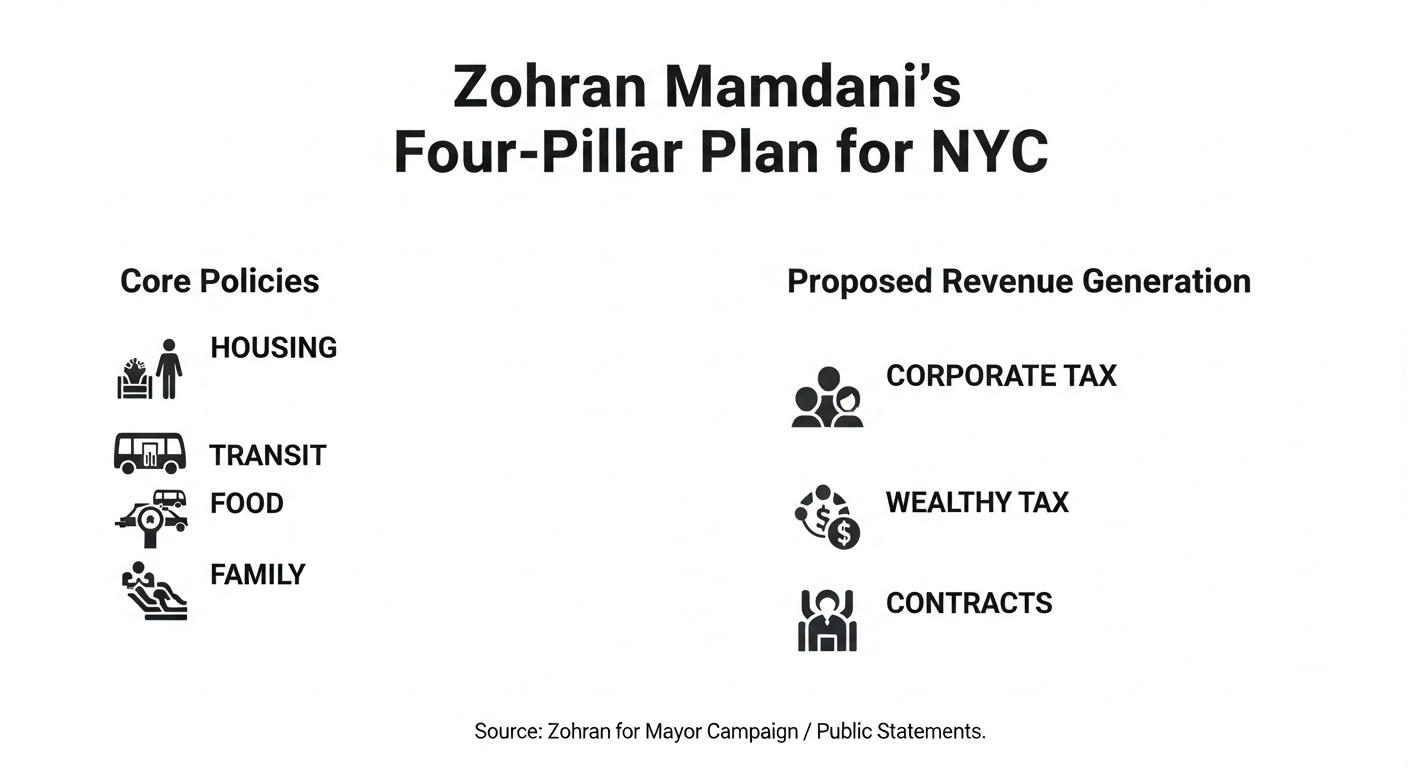An Upset in the Making: The Son Rises
Zohran Mamdani delivered a stunning blow to the political establishment, securing a commanding lead over former Governor Andrew Cuomo in the Democratic primary. Initial results from the NYC Board of Elections placed Mamdani at 43.5% to Cuomo's 36.3%, a decisive margin that led Cuomo to concede the race. The victory immediately cast a spotlight on Mamdani’s formidable lineage as the son of Oscar-nominated filmmaker Mira Nair and esteemed academic Mahmood Mamdani.
This political upset is not an isolated event but the latest chapter in a family legacy defined by challenging entrenched power. Zohran’s victory is a political manifestation of the same spirit that fueled his parents' careers. His grassroots, anti-establishment campaign runs parallel to his mother’s own journey as a cinematic trailblazer. Just as Mira Nair broke through the gates of a monolithic Hollywood to give voice to the unseen and unheard, her son has now breached the walls of a calcified political system. His insurgency is a direct inheritance, transforming his mother's artistic rebellion into a potent political force aimed at dismantling the status quo from the inside.

The Nair Precedent: Breaking Barriers in Hollywood
Mira Nair’s career is a case study in artistic insurgency. Her debut, 'Salaam Bombay!' (1988), bypassed industry norms to earn an Academy Award nomination for its portrayal of Mumbai's street children. She later won the Venice Film Festival's prestigious Golden Lion for 'Monsoon Wedding' (2001), a vibrant celebration of a Punjabi family. But her commitment to centering marginalized narratives faced direct institutional resistance.
While developing the groundbreaking 'Mississippi Masala' (1991), a romance between Denzel Washington and Sarita Choudhury, Nair confronted a stark demand. In a 2022 Slate interview, she recounted a studio head telling her to "make room for a white protagonist." Nair refused, committed to her vision of putting "Black and brown skin in the one frame." This defiance was not just an artistic choice but a political act, proving that stories about people of color did not need a white intermediary to be valid or successful. It cemented her legacy as a filmmaker who consistently broke barriers to give voice to the unseen.
The Mamdani Playbook: A Grassroots Political Machine
Mamdani’s victory is a product of strategic organizing and a platform laser-focused on economic justice. His background—born in Kampala, Uganda, in 1991, moving to New York City at seven, and educated at Bronx High School of Science and Bowdoin College—informs his political identity. As a State Assemblyman, he built a reputation for delivering tangible results, most notably securing $450 million in debt relief for taxi drivers and championing $100 million in subway funding.
This record of effective advocacy became the bedrock of his mayoral campaign. He translated his anti-establishment ethos into a formidable grassroots operation that, according to political consultant Jerry Skurnik, mobilized a record-breaking 50,000+ volunteers. This ground force was amplified by high-profile endorsements from progressive stalwarts Bernie Sanders and Alexandria Ocasio-Cortez, who validated his credentials as a genuine movement candidate. At the heart of his appeal was a simple, resonant message: a direct commitment to tackling New York City’s crushing cost of living. By centering the economic anxieties of everyday New Yorkers, Mamdani built a coalition powerful enough to topple a political giant.

Parallel Paths: From Film Sets to Picket Lines
The link between their methods was forged long before Zohran’s political career. As a teenager, he relentlessly lobbied his mother to grant Kal Penn an audition for The Namesake, convinced he was perfect for the lead. His persistence paid off, an early display of the conviction that would define his organizing. This drive is the common thread in their life's work.
Nair’s fight against studio demands to "make room for a white protagonist" is directly mirrored in her son's political insurgency. Where she insisted on centering marginalized people on screen, Mamdani has built a movement by centering working-class people in policy. Her artistic rebellion and his political one share the same DNA. This familial synergy was clear when Nair posted on social media: "If you want a progressive mayor, remember to vote for our son @zohrankmamdani!"
Their support is rooted in a shared methodology. Both mother and son operate from the same playbook, one defined by a core, unwavering strategy: to challenge entrenched systems by championing the voices and needs of those those systems have historically ignored. Whether in Hollywood or City Hall, their mission is to give power to the overlooked.
The Road Ahead: Transformative Potential vs. Political Reality
As New York City’s potential first Asian and first Muslim mayor, Zohran Mamdani stands on the cusp of a historic new chapter. However, the insurgent energy that powered his primary victory will immediately collide with the institutional realities of governing. His path is fraught with formidable obstacles, turning his electoral mandate into a test of political endurance.
The challenges are stark and immediate. Mamdani’s ambitious tax-the-rich platform is guaranteed to face fierce resistance from the city’s powerful financial and real estate sectors, which wield immense influence over municipal policy and the city budget. The moderate Democratic establishment he vanquished, still loyal to figures like Cuomo, will likely coalesce into a potent opposition bloc, working to obstruct his agenda from within the system he now leads. Furthermore, his most transformative proposals—such as creating city-run grocery stores to combat food deserts—present unprecedented logistical and bureaucratic hurdles. These initiatives require building entirely new public infrastructure from the ground up, a monumental task for any administration.
Mamdani’s victory was a triumph of movement-building, a testament to his ability to translate grassroots energy into electoral power. The central question now becomes whether that same energy can survive the institutional forces and entrenched economic interests of America's largest city. He has proven he can win an election; now he must prove his vision can govern.
